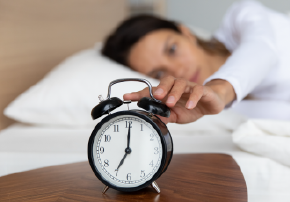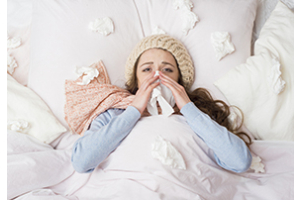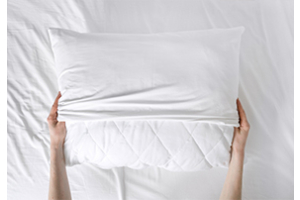How Many Hours of Sleep Are Good for Your Health?


The Long And The Short of Sleep.
Tick-tock. It’s sleep o’clock. Some of us sleep earlier. Some later. But how many hours, ideally, should we sleep each night? Is it better to sleep longer? Are shorter sleep periods more beneficial to our wellbeing?
For generations, we’ve likely been told that 8 hours is the ideal amount of sleep we need, every night. And then we start considering that this equates to a third of our lives! Yip. We spend a third of our lives entirely unconscious.
Well, yes and no. Though sleep still holds many mysteries, sleep researchers are learning more and more about the vital importance and dynamic processes of sleep. And everybody sleeps in their own, innate way. And here’s why.
What time is it best to sleep?
First, sleep scientist, Dr Dale Rae, explains our own unique, internal body clocks. “As technology has allowed us to collect more and more data on human sleeping patterns, we’ve come to understand just how dynamic the sleep process is. Importantly, we now also know that the time people sleep can vary according to an innate body clock, or circadian rhythm. It’s something each of us is born with.”
Dr Rae goes on to explain different preferences for when people prefer to sleep.
“You have only to think about your own sleep patterns and you will realise that you might be inclined to sleep and rise earlier. Or perhaps you sleep and rise later. Typically, we call these ‘early birds’ and ‘night owls’. And then, of course, there’s a range of ‘in-betweeners’ who sleep neither too early, nor too late. While seasons and environments can affect sleep behaviours, on the whole, each of us has an in-built sense of the sleep time our minds and bodies prefer.”
So, how many hours should you sleep?
Next, Dr Rae dispels the standard 8-hour sleep myth. “We’ve come to understand that the healthy ‘sweet spot’ of sleep duration is anything between 7 and 9 hours each night." Children and teenagers (aged 6-17 years) whose minds and bodies are forming and growing will likely sleep longer, needing anywhere between 7 and 12 hours each night. As you mature into older adulthood (65 years and older), you may do just fine on 1 or 2 hours less sleep compared to young adults. The recommended guidelines, however, are still between 7 and 8 hours. The elderly might struggle with sleep a bit more and tend to sleep for shorter periods, or intermittently throughout the day and night.
While sleep science and research now give us far more insight into different sleep preferences, science cannot really prescribe exactly how long each person should sleep for. Odds are, you will know (internally) the right amount of sleep that you need as an individual for optimal physical and mental functioning.
“Sleep science informs us how important it is to manage our own, unique sleep needs,” Dr Rae explains. “Though the average sleep duration does change as we age, even in adulthood some people enjoy deep, quality sleep in just 6 hours. And this is perhaps another key aspect of sleep. It's also about how well we sleep through our normal duration.”
Sleep well. Be well.
In previous blogs, we’ve taken a look at the sleep patterns of high-profile, highly achieved leaders, as well as the all-important sleep cycles that are needed for deep, fully restorative sleep. Overall, these high-profile, high-achievers tend to show a preference for sleeping and waking earlier, though this is by no means a given. The critical commonality is that high achievers sustain their stamina by sleeping the full duration of hours they need each night. In addition, this sleep is also of high quality, meaning that their brain and vital bodily functions are able to process effectively the next day.
“There really is no getting around it,” says Dr Rae. “Our minds and bodies will always tend towards our unique, default sleep preferences. The sooner we become in tune with this, and afford ourselves the quality sleep we need, the healthier we are likely to remain.” A good way to gauge your own body clock as a working adult is perhaps to think about when you are on holiday, after you have recovered from any accumulated sleep debt. Your naturally preferred bedtime and wake-up time while on holiday is generally a good indication of your innate body clock’s sleep-wake timing. This should also give you an indication of how many hours of sleep you need. And it will most likely be within the range of 7-9 hours. Pay attention, also, to how refreshed you feel in the morning. If you’re up and at it, you’ve likely slept well. If you’re listless and wanting to snooze in, you may not have benefited from proper, quality sleep.
Get some sleep-time advice
The Sleep Science team in Cape Town consults online, wherever you happen to live and sleep. Take control of managing your sleep ‘sweet spot’ for increased wellbeing and productivity. Get the benefit of experienced sleep researchers and consultants who will guide you to finding your best sleep, whatever your lifestyle demands. Explore more at www.sleepscience.co.za.
The time to come to Dial•a•Bed is now!
If it’s been more than 8 years since you last updated your mattress, best you do a much-needed sleep check-in at Dial•a•Bed. You’ll be amazed how the latest mattress design and engineering can bring a whole new feeling and meaning to quality sleep. South Africa’s largest bed brand retailer offers every conceivable level of support and comfort. Because we all have unique sleep needs. Shop for South Africa’s best bed brands that suit both your sleep and your budget. Find your dream bed and your nearest store here . #SleepForLife.
TAKE CARE: Lifestyle recommendation is not medical advice. Always consult your healthcare professional should you be experiencing prolonged sleep difficulties or related health issues. *Ts & C’s apply.





